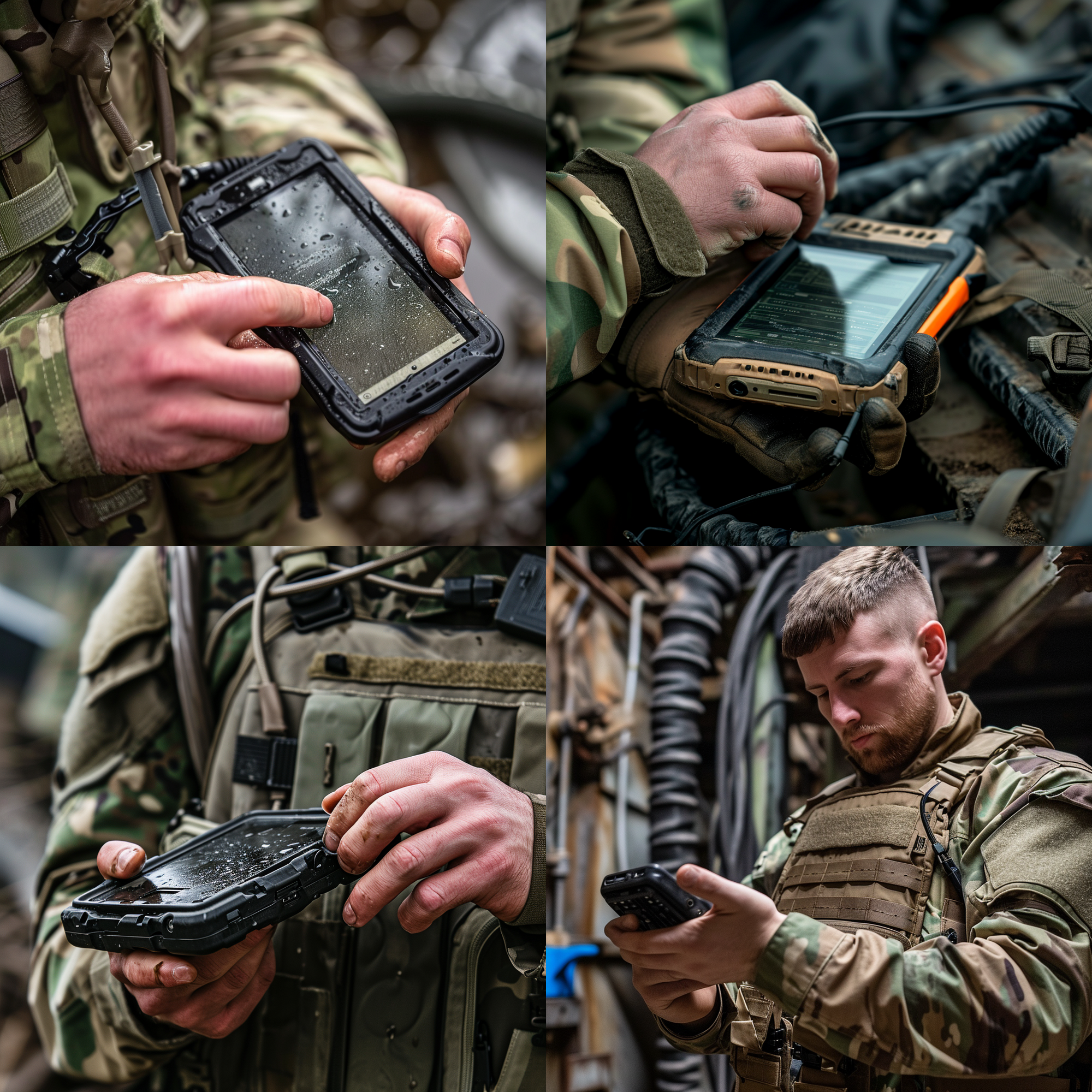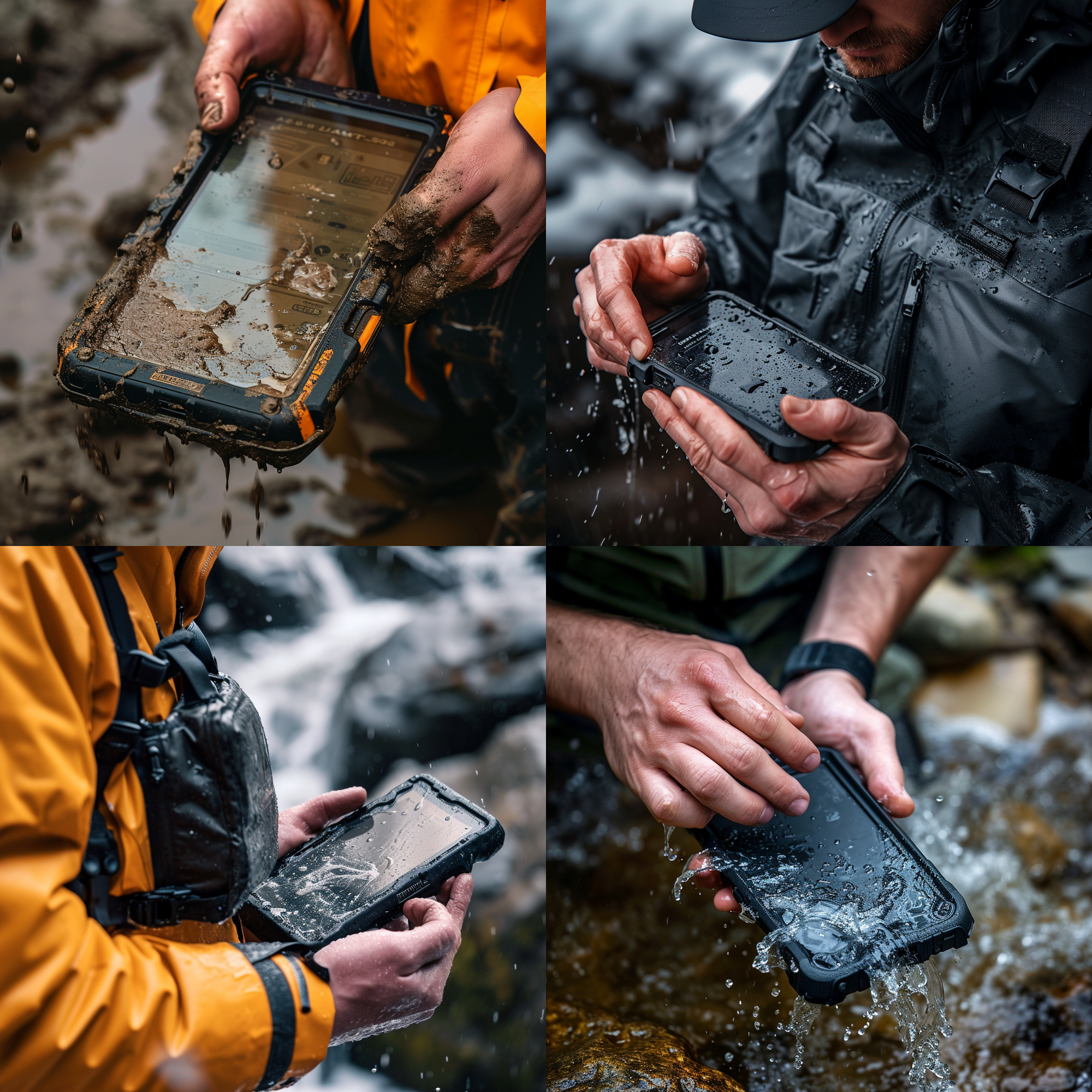Dive deep into the world of rugged device certifications with our detailed breakdown of IP68, IP69K, MIL-STD-810H, and other standards, essential for understanding the durability of devices like AGM's.
Introduction to Rugged Device Certifications
Rugged device certifications like IP68, IP69K, and MIL-STD-810H are crucial indicators of durability. This article provides an in-depth analysis of these standards, helping you understand what they signify for devices such as AGM's rugged smartphones and tablets.
IP68 Certification Explained
Definition and Criteria
IP68 is a rating granted by the International Electrotechnical Commission. We'll define what IP68 stands for, including the specifics of the '6' and '8' digits in terms of protection against dust and water.
Practical Implications for Device Use
This section will cover the practical implications of the IP68 rating for everyday use, including limitations and the types of environments where these devices excel.
Understanding IP69K Certification
High-Pressure Water Resistance
IP69K is a step above IP68, specifically designed to withstand high-pressure and high-temperature water jets. We'll delve into what this certification tests and what it means for the durability of a device.
Use Cases for IP69K Devices
We'll discuss the typical use cases and industries where IP69K certification is particularly important, such as in construction and manufacturing environments.
MIL-STD-810H: Military Standard Testing
Overview of MIL-STD-810H
MIL-STD-810H is a series of tests developed by the U.S. military to simulate equipment use in various environmental conditions. This part will break down what these tests entail and the aspects of ruggedness they cover.
How MIL-STD-810H Applies to Consumer Devices
We'll explain how the MIL-STD-810H standards, though military in origin, apply to consumer devices and what passing these tests means in terms of device resilience.
Additional Rugged Features: Shockproof and Dropproof
Impact Resistance Explained
Shockproof and dropproof features are key to rugged devices. We'll discuss the technology behind impact resistance and how it's tested.
Real-World Benefits of Shockproof and Dropproof Devices
This section will explore the real-world benefits of using a device that is shockproof and dropproof, including user scenarios and environments.
Dustproof Qualities in Rugged Devices
What Does Dustproof Mean?
We'll clarify what being dustproof entails for a rugged device and the testing criteria used to determine this capability.
Significance in Various Environments
Understanding where dustproof features are most beneficial, this part will highlight specific environments and situations where a dustproof device is essential.
Conclusion: The Significance of Rugged Certifications
We'll wrap up with a summary of how understanding these certifications can help consumers make informed decisions when selecting a rugged device, emphasizing the strengths of AGM's product range in meeting these rigorous standards.
Introduction to Rugged Device Certifications
Rugged device certifications like IP68, IP69K, and MIL-STD-810H are crucial indicators of durability. This article provides an in-depth analysis of these standards, helping you understand what they signify for devices such as AGM's rugged smartphones and tablets.
IP68 Certification Explained
Definition and Criteria
IP68 is a rating granted by the International Electrotechnical Commission. We'll define what IP68 stands for, including the specifics of the '6' and '8' digits in terms of protection against dust and water.
Practical Implications for Device Use
This section will cover the practical implications of the IP68 rating for everyday use, including limitations and the types of environments where these devices excel.
Understanding IP69K Certification
High-Pressure Water Resistance
IP69K is a step above IP68, specifically designed to withstand high-pressure and high-temperature water jets. We'll delve into what this certification tests and what it means for the durability of a device.
Use Cases for IP69K Devices
We'll discuss the typical use cases and industries where IP69K certification is particularly important, such as in construction and manufacturing environments.
MIL-STD-810H: Military Standard Testing
Overview of MIL-STD-810H
MIL-STD-810H is a series of tests developed by the U.S. military to simulate equipment use in various environmental conditions. This part will break down what these tests entail and the aspects of ruggedness they cover.
How MIL-STD-810H Applies to Consumer Devices
We'll explain how the MIL-STD-810H standards, though military in origin, apply to consumer devices and what passing these tests means in terms of device resilience.
Additional Rugged Features: Shockproof and Dropproof
Impact Resistance Explained
Shockproof and dropproof features are key to rugged devices. We'll discuss the technology behind impact resistance and how it's tested.
Real-World Benefits of Shockproof and Dropproof Devices
This section will explore the real-world benefits of using a device that is shockproof and dropproof, including user scenarios and environments.
Dustproof Qualities in Rugged Devices
What Does Dustproof Mean?
We'll clarify what being dustproof entails for a rugged device and the testing criteria used to determine this capability.
Significance in Various Environments
Understanding where dustproof features are most beneficial, this part will highlight specific environments and situations where a dustproof device is essential.
Conclusion: The Significance of Rugged Certifications
We'll wrap up with a summary of how understanding these certifications can help consumers make informed decisions when selecting a rugged device, emphasizing the strengths of AGM's product range in meeting these rigorous standards.










